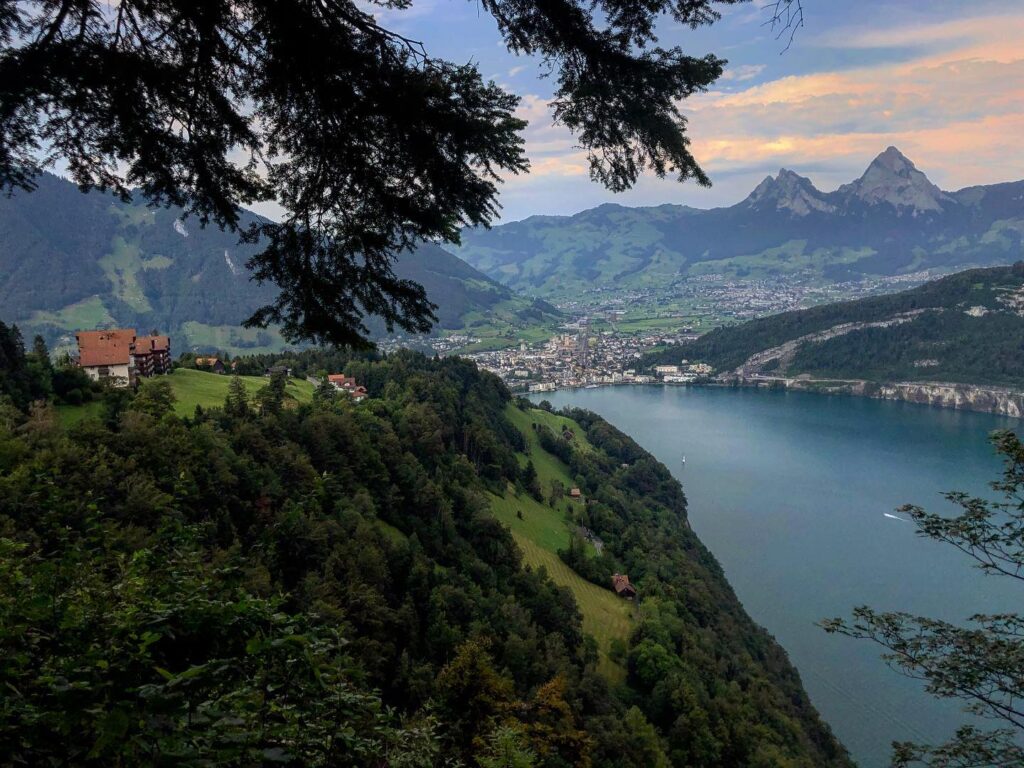

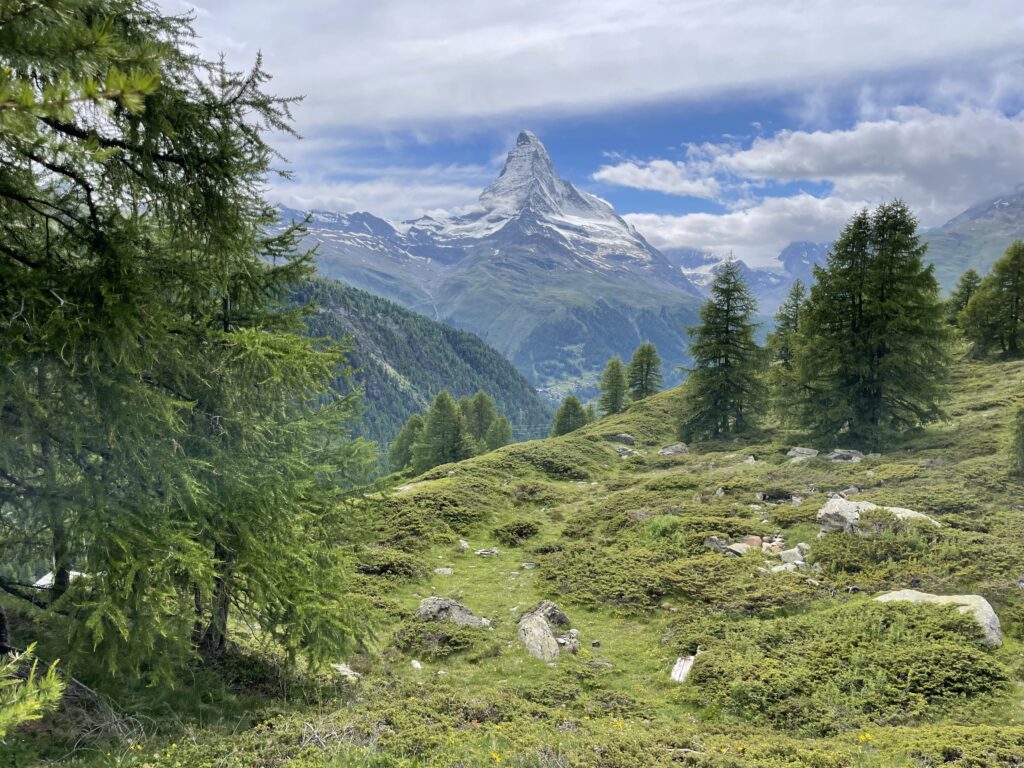
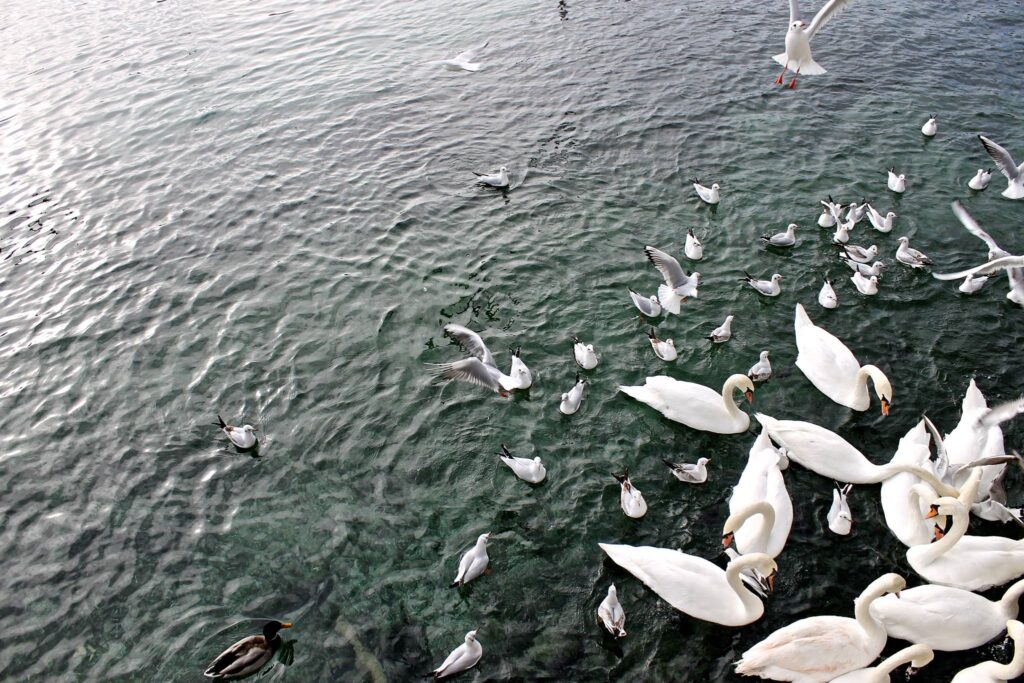
This year marks the longest period in which I’ve lived in one city for the course of my adult life. For years I dreamt of living in a French-speaking country. While I job hunted in France, Morocco, Canada, and even Pondicherry, India, Switzerland never crossed my radar.
Located in Central Europe, I personally do not find there to be any gut wrenching, heart stopping, value clashing, profound cultural shocks between Switzerland and the United States (hello Calvinism). However, over the past few years, I have discovered a few aspects of which make living a life abroad all the more fascinating.

Snapshot from moving day in Switzerland
- Tolerance
- Voting: for the People, by Parliament
- Boots on the Ground: Mandatory Military Service
- Languages – Sprechen Sie Deutsch?
- Cut the Chit Chat – Saving Small Talk for Those Who Care
- Third Time’s the Charm
- No Sweat: Who Needs AC When You Can Go to the Alps?
- Swiss Wine Uncorked
- Swiss Cents: Life in One of the Most Expensive Countries in the World
- The Power of Sundays
Tolerance
I boarded the plane to Geneva six years ago, hoping that the roommate I connected with on Facebook was a real person, and that the apartment was a real place. To my pleasant surprise, she not only existed, but was kind, and our beautiful apartment was located in the heart of the city. I also quickly learned that we lived above a brothel.
From its exterior, the brothel seemed like any other bar, nestled in between a mini golf course and a shop selling bubble tea. When a friend from neighboring France came to visit, I suggested that we test out the spot for a drink before dinner.
“You do realize that’s a champagne bar, don’t you?” my roommate inquired, overhearing our discussion. Seeing our eager expressions at the thought of a bottomless champagne bar, she clarified: “Un bar à champagne is a fancy term here for a brothel.”

Switzerland’s idea of tolerance is not a subject that I often cross in guidebooks. I can’t help but wonder, how is it that the world’s hub for international diplomacy and discourse on human rights turns a blind eye towards selling sex in the street? Since 1942, prostitution has been legalized and regulated in Switzerland. And while no place in the world has legalized prostitution in the street, cities such as Geneva and Zurich accept the practice. In 2013, Swiss parliament raised the legal age for sex workers from 16 to 18, aligning with regulations in neighboring countries.
Legalization of prostitution in Switzerland does treat the practice as with any other business. Brothels are required to pay taxes, and sex workers must hold residence or work permits, have health insurance, and declare their occupation with the authorities1. Sex workers are granted certain rights, for example, in 2021, the highest Swiss court made a groundbreaking decision allowing sex workers to take clients to court. Until then, agreements between sex workers and clients were considered to be immoral and therefore invalid2.
Voting: for the People, by Parliament
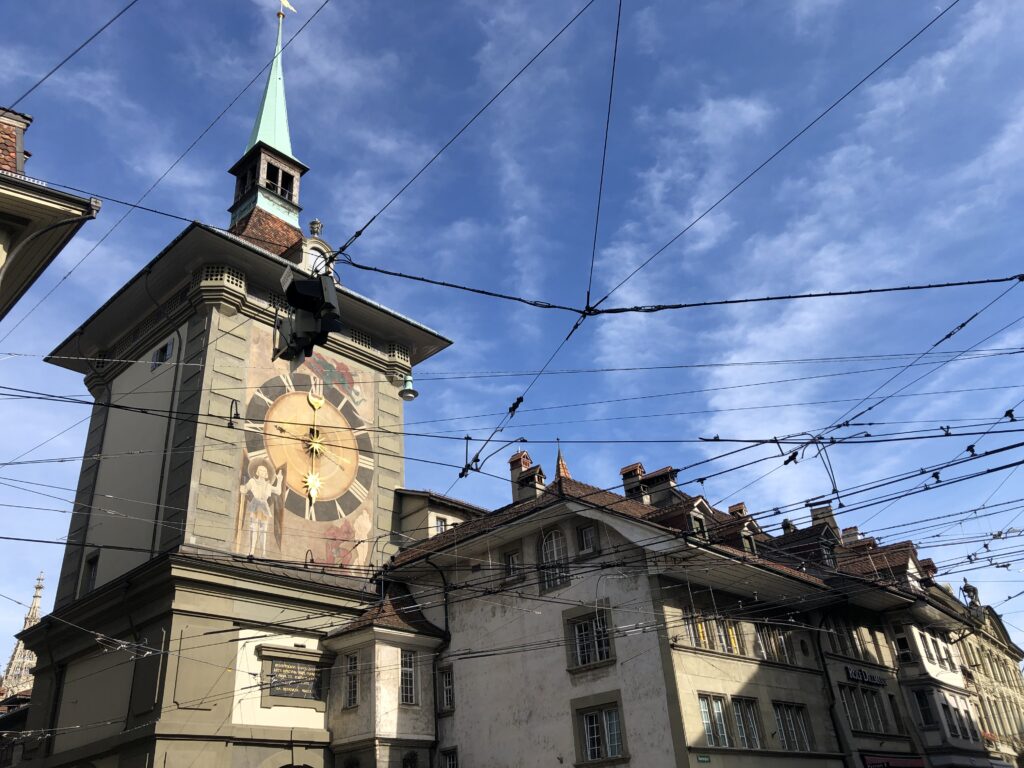
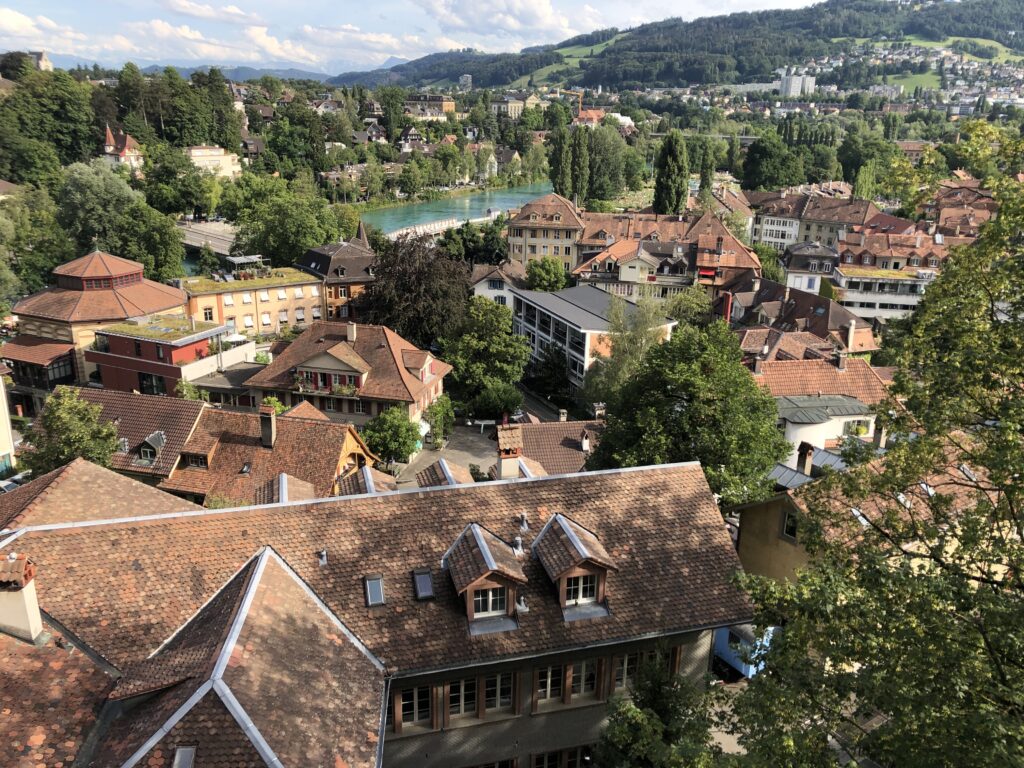

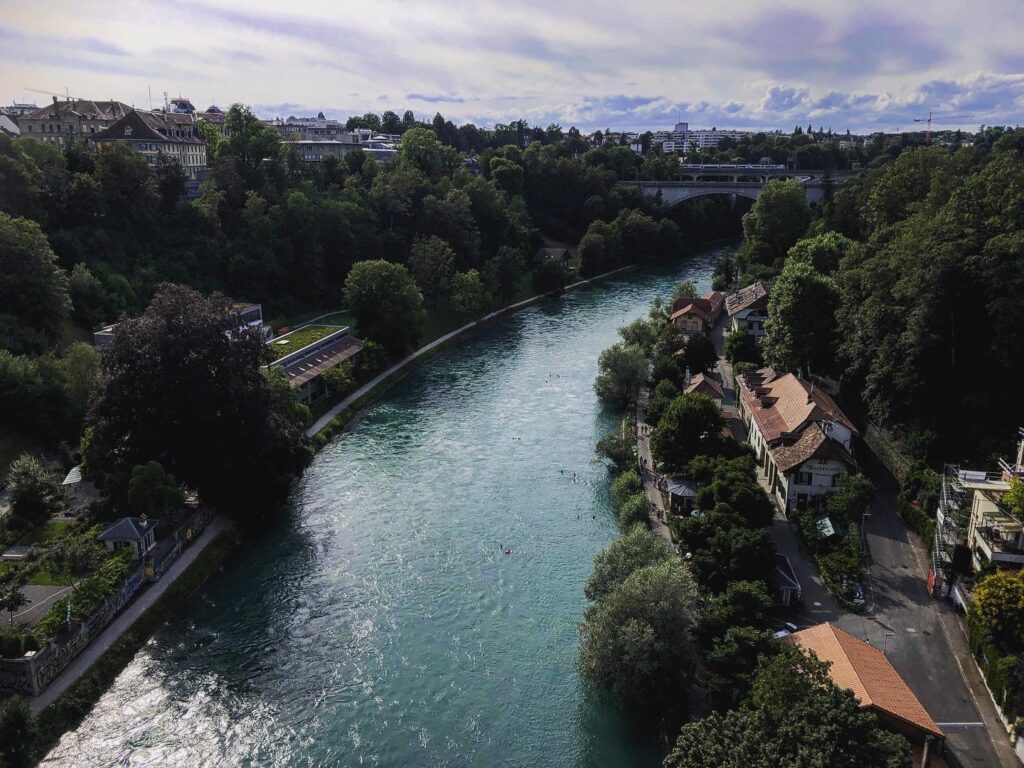
Photos from Switzerland’s capital city Bern
“I don’t vote for a political party, I vote for ideas,” my Swiss husband once said.
Three to four times a year, we receive a pamphlet by post detailing a number of social issues, referendums or new initiatives on which Swiss citizens of the canton of Geneva are asked to vote. Topics in recent years have concerned the sale of alcohol by the local grocery store chain Migros (residents voted against), the banning of wearing head coverings such as burqas in public spaces (residents voted in favor) or the construction of a new pedestrian bridge over Lake Geneva (residents felt that the bridge would be too costly, both financially and for the environment).
Switzerland is the only country in the world which has a collective body serving as its government, reaching decisions based on consensus. Instead of one president, Switzerland has a Federal Council consisting of seven members disposing equal rights.
Each year, one of the seven members of the Federal Council is president, who, like the lead singer in a 90s boy band, is the outward facing representative of Switzerland. The seven members of the Federal Council represent one of four of the strongest political parties active throughout the 26 Swiss cantons. In true Swiss fashion, left-wing, right-wing, and centrist parties share executive power3.
While the Swiss vote on specific issues, the election of the seven members of the governing Federal Council is left up to the 246 members of parliament, the latter being elected by the people. Members of the Federal Council serve four-year terms, with a kicker: they can be re-elected any number of times. According to the government’s website, most remain until retirement, or unless deciding not to run for re-election.
I find it fascinating that the Swiss vote for members of parliament and not the Federal Council, feeling confident that their elected officials will choose the seven members wisely. It feels a bit like trusting your parents to arrange your marriage. The Swiss have voted on whether the Federal Council should be elected by the people in 1900, 1942 and 2013, which was repeatedly rejected.
Boots on the Ground: Mandatory Military Service
Videos from a train journey with the Swiss military
As we reached the platform to board a train to Zurich, my friend Polina and I were surprised to find what seemed hundreds of young men dressed in camouflage throughout the station, en route to the same destination. They couldn’t have been over 25 years old, and, like us, seemed overjoyed to have made it to Friday night. A young soldier sitting on his suitcase took out an accordion and started playing, his comrades around him tapping their feet to the rhythm of the music, occasionally taking a sip of their beer in hand.
As a previous train had been cancelled, what seems a rare occurrence in Switzerland, our train was overfull. We walked from carriage to carriage, finding passengers sitting in the corridor looking up towards the lucky ones relishing in cushioned seats. We crossed to the last carriage, seeing it filled with young soldiers sitting on the ground, singing in Swiss German and passing cans of beer. As we arrived, their singing abruptly stopped. They said something in Swiss German, and, realizing that we couldn’t understand a word, motioned for us to join them on the ground throughout the three-hour train journey.
Switzerland is one of the few countries in the world which constitutionally requires all “able bodied men between the ages of 18 and 34” to complete military service. Initial military service typically lasts five months, with annual courses lasting several weeks over the following 10 years. According to an article published by the BBC, the Swiss army is solely designed to be used in cases of self-defense4. In a historically neutral country, the need for mandatory enlistment (147,000 soldiers to defend a population of 8.85 million) has often come into question.
If anything, as our train journey illustrated, the army provides an opportunity to build solidarity across Switzerland’s linguistically and culturally diverse German, French, Italian, and Romansh speaking regions.
Languages – Sprechen Sie Deutsch?
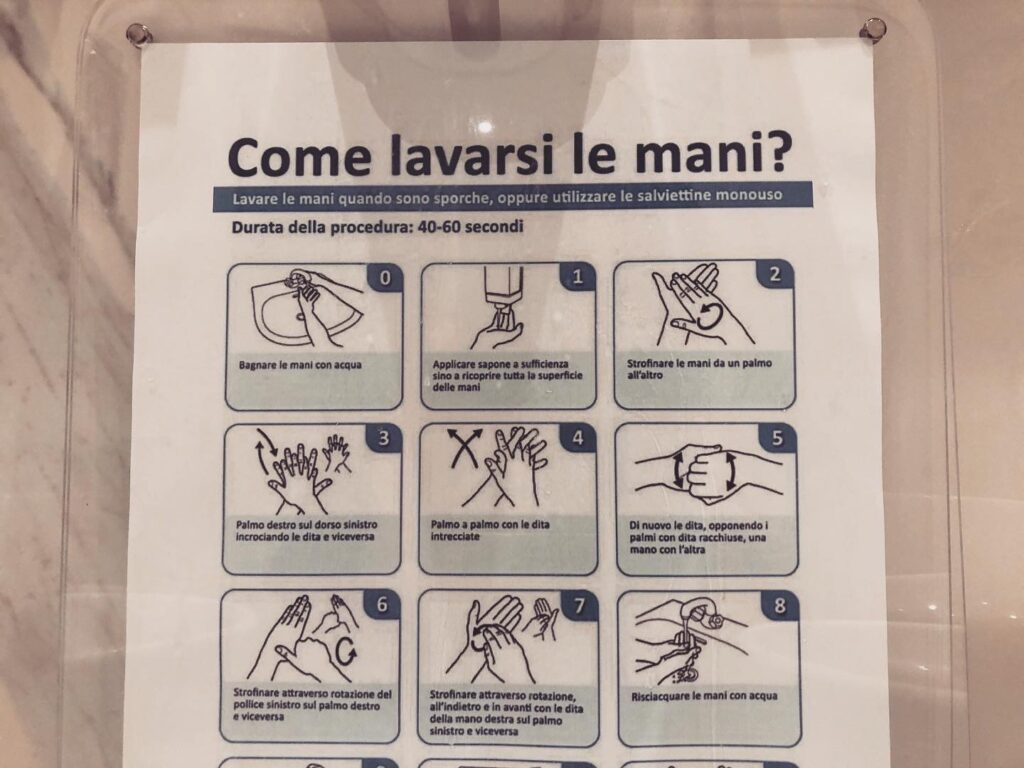
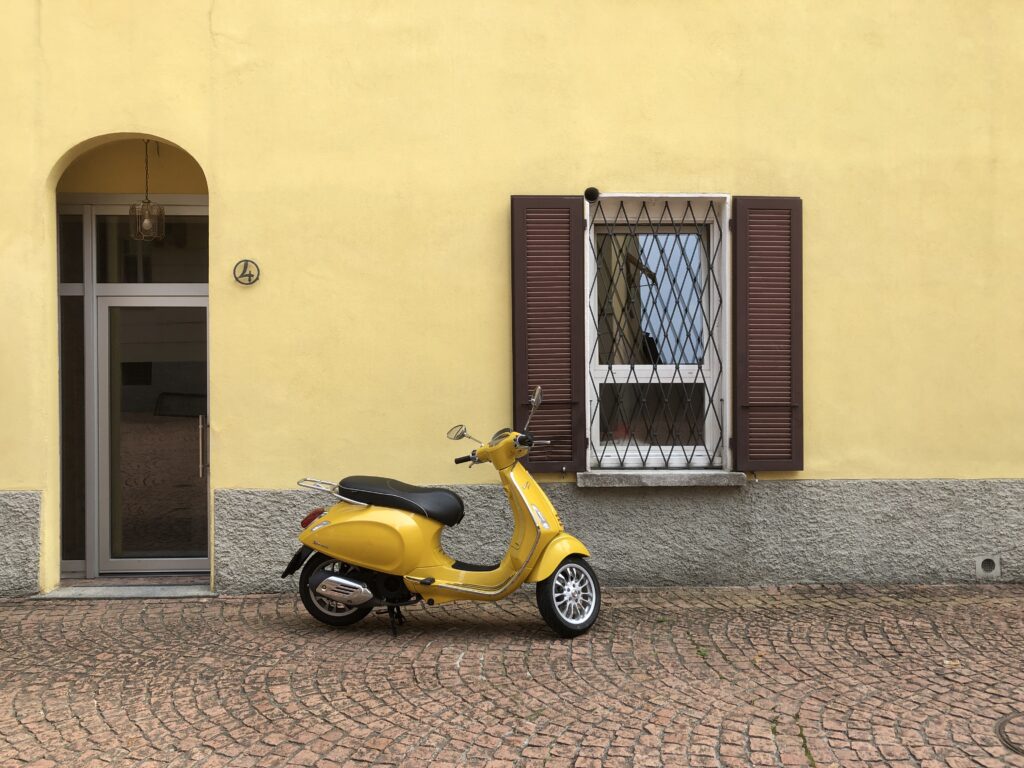
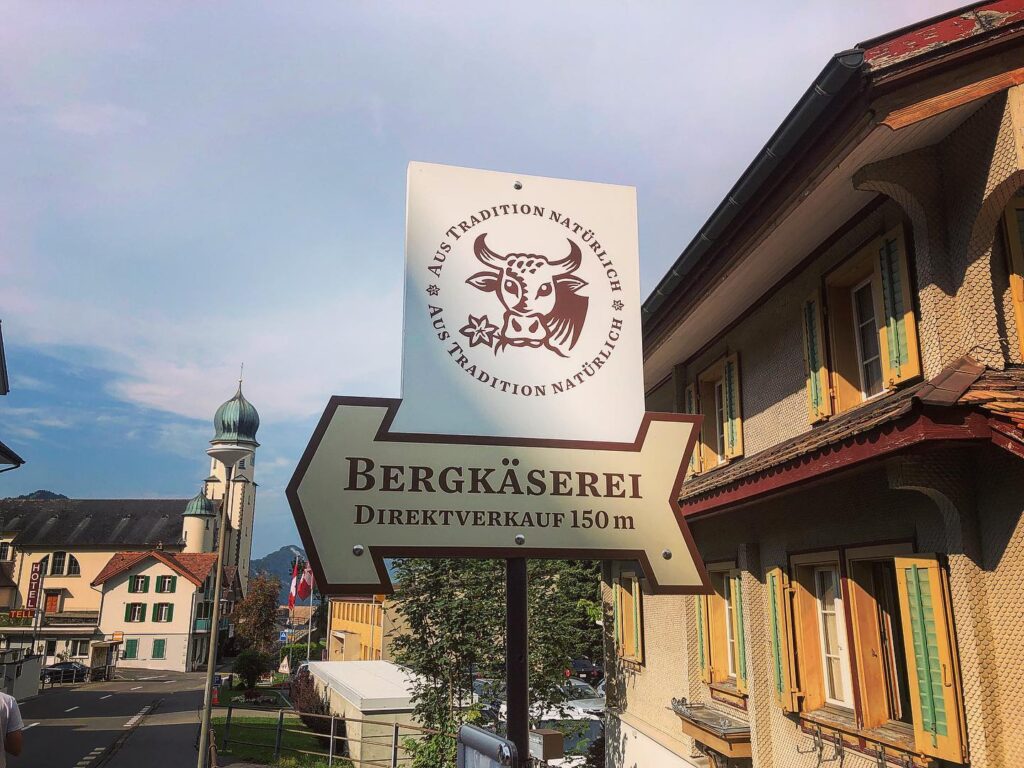


Photos from travels to Swiss cities Zermatt (German speaking) and Lugano (Italian speaking)
I buy my groceries in German, speak French at home, write emails in English at work, and watch all movies at the cinema subtitled in a combination of two or three of these languages, at times with an additional line for Italian.
For linguistics nerds, the harmony between four national languages is nothing short of spellbinding. I find the train conductors the most impressive – driving across the country, the announcements regarding the open bar, next stop, or friendly reminder for passengers to watch their step between the railway and the platform, shift from French, to German, to Italian, dependent on the direction of travel. Travelers will notice the linguistic diversity during the safety instructions before takeoff with Swiss Airlines, observing the video and main menu subtitled in German, French, Italian and Romansh, a Rhaeto-Romance language spoken in the canton of Graubünden, a first language for 1% of the population.
According to the Swiss Foreign Ministry, German is the predominant language spoken amongst 60% of the population, with French trailing behind (20%), as well as Italian (8%), Romansh (1%), with remaining spoken languages consisting primarily of English, Portuguese and Albanian.
Cut the Chit Chat – Saving Small Talk for Those Who Care
“You asked your doctor where she was from?” my mother-in-law asked flabbergasted. In my defense, I am extremely nervous in medical settings. My introverted nature takes a 360 degree turn while sitting in a doctor’s office. Instead of doing deep breathing exercises or thinking positive thoughts, my brain goes into autopilot, and I just. can’t. seem. to. shut. up. My motor mouth moves at an increasingly rapid pace, until I’ve discussed aspects of my childhood, that one time at band camp, what we had for dinner last night, and oh, did I mention that I’m an only child?
That day, I remember my doctor checking my blood pressure, and, in the subsequent awkward seven seconds of silence that followed I asked, “Are you from Geneva?” She looked at me for a moment in surprise, then responded with a firm “No.”
Conversation over.
“Of course your doctor didn’t tell you where she was from, that’s not why she’s there!” my mother-in-law said, laughing at the thought of my attempt at small talk with my medical practitioner.
In six years of living in Geneva, I am struck by the tightly knit friendships among the Swiss in my circle. And while it is important not to generalize the population, friendships seem to develop from a young age and stay consistent throughout adulthood. Talking to strangers is viewed as an invasion of privacy. Opening your home to someone new requires a connection with one of the elected members of the wolf pack (e.g., an American girlfriend of one of the squad members).
Following consecutive successful encounters, you are more prone to be accepted into the circle for life.
Third Time’s the Charm
In the same vein as saving small talk for those you know, the Swiss also save three pecks on the cheek, or a simple handshake between men.
This is not to be confused with neighboring France, where greeting someone is welcomed by two kisses on the cheek, sometimes three, four or five, dependent on the region, at times starting from the right cheek to the left, or left cheek to the right.
No Sweat: Who Needs AC When You Can Go to the Alps?
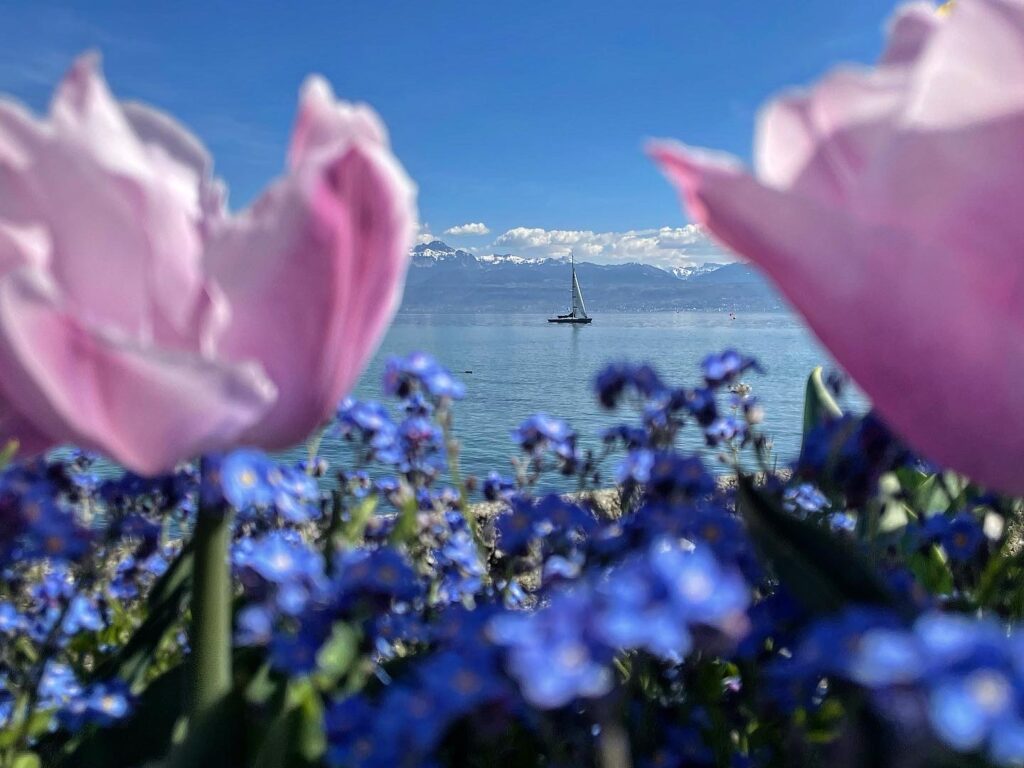
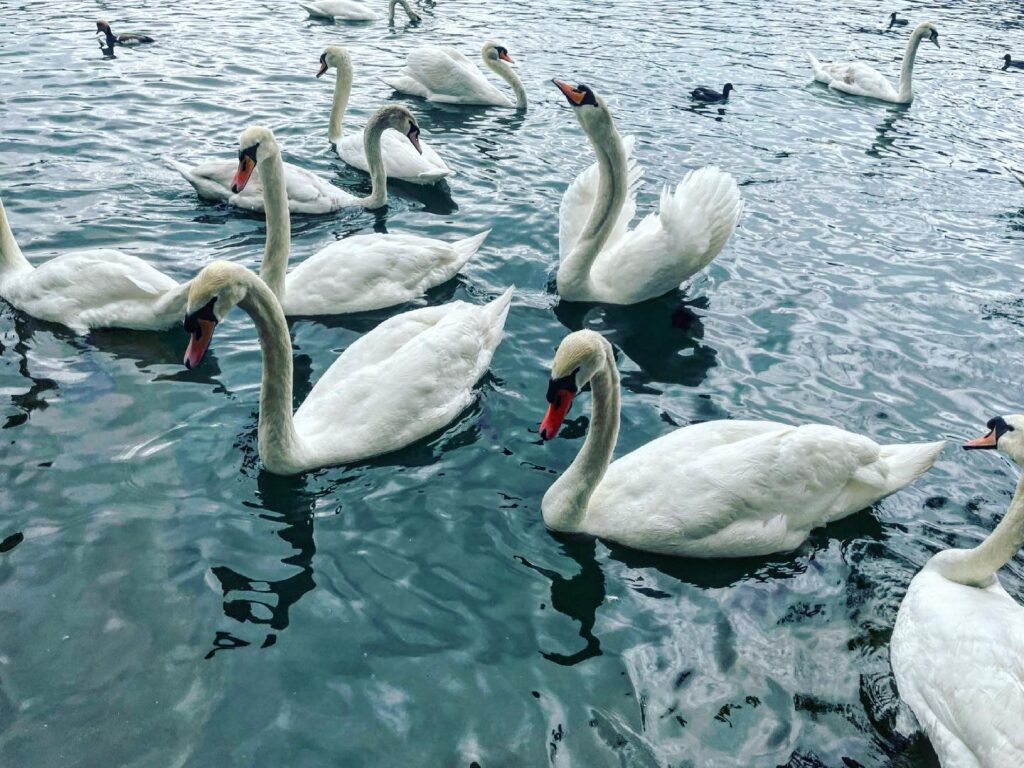

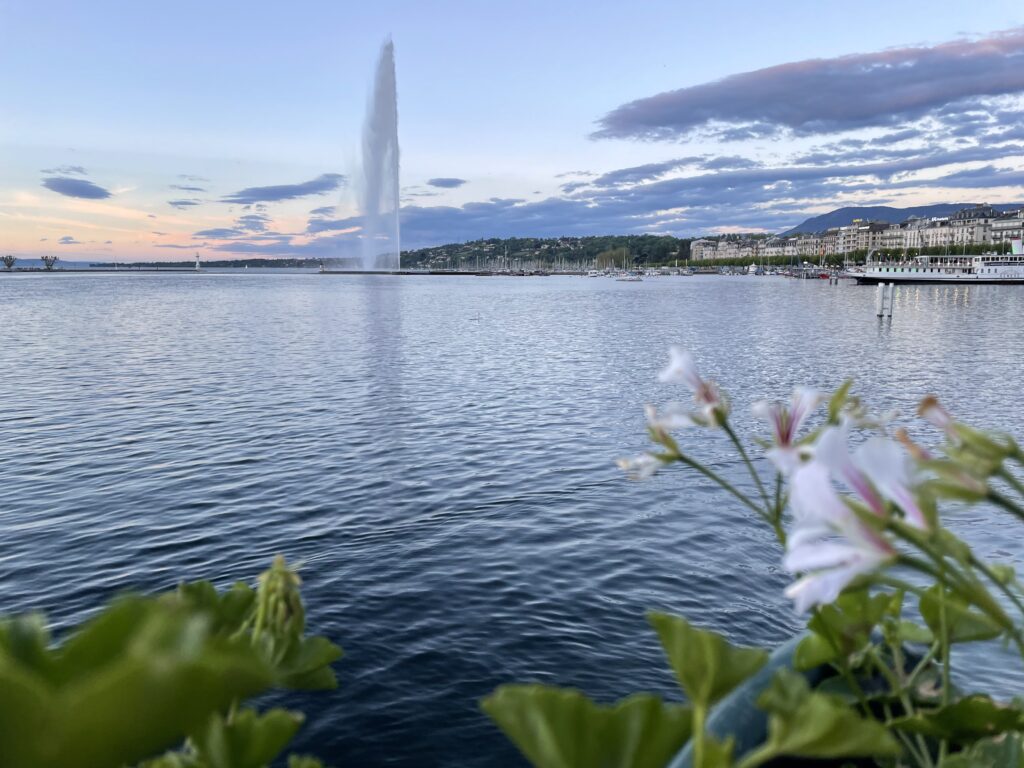
Photos of summer in Geneva, Switzerland
I remember one sweltering hot summer day that I decided to go into a movie theater to cool off. In my landlocked Midwestern state of mind, one need not go to a body of water to be cool, but rather any US grocery store or movie theater with the air conditioning set so low that your teeth need sweaters.
I went by myself to a movie called La Vie d’Adele, a steamy romance between two French women, shortly after lunch, at an hour when only some d’un certain âge were present, benefiting from that special senior discount. I entered the dark theater, feeling not only sticky from the humidity, but now sticky, alone, and in the dark.
In recent years, heat waves have become ever more commonplace in Switzerland. Despite increasing heatwaves and buildings designed to conserve heat during winter, air conditioning is a rare luxury. AC is deemed as unnecessary for the population as well as detrimental to the environment. Summers are short, and the nearby mountains and lake provide a natural cooling system.
Regulations on cooling systems are left up to each of the 26 cantons, with Geneva holding the strictest rules throughout the country. To install AC, the cantonal authorities require proof of a real need, such as a medical certificate. Typically, retirement homes will have air conditioning, as well as some hotels (however, travelers are advised to double check on this beforehand, as sometimes “air conditioning” is code for a plugged-in fan and open window).
Swiss Wine Uncorked
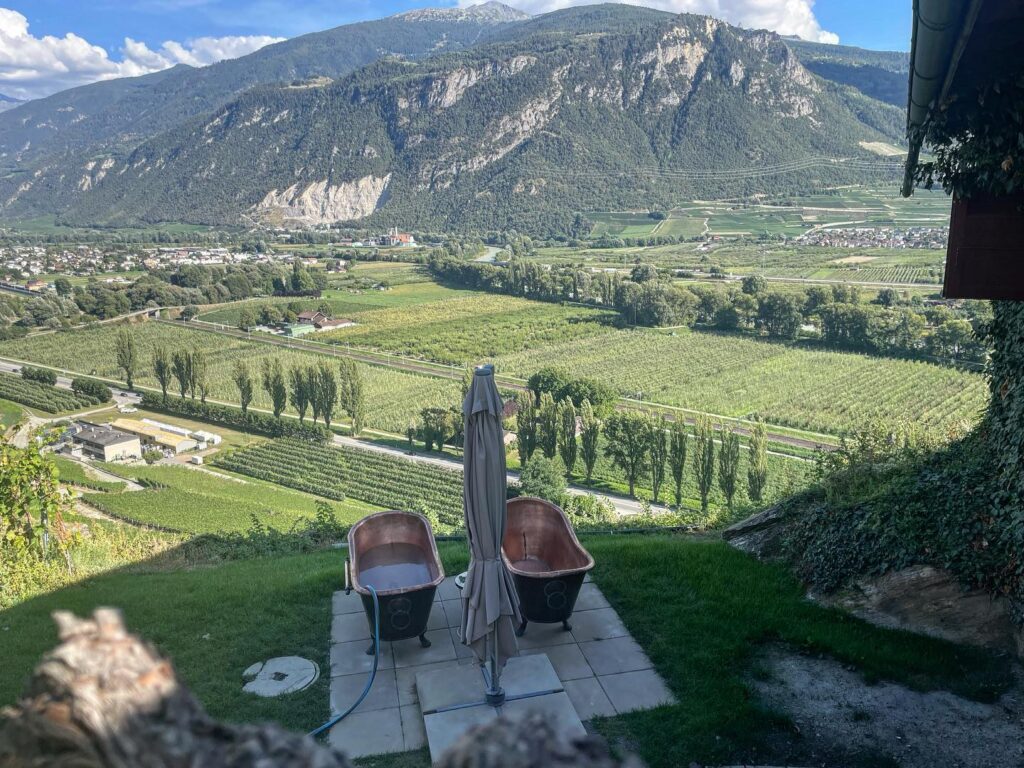
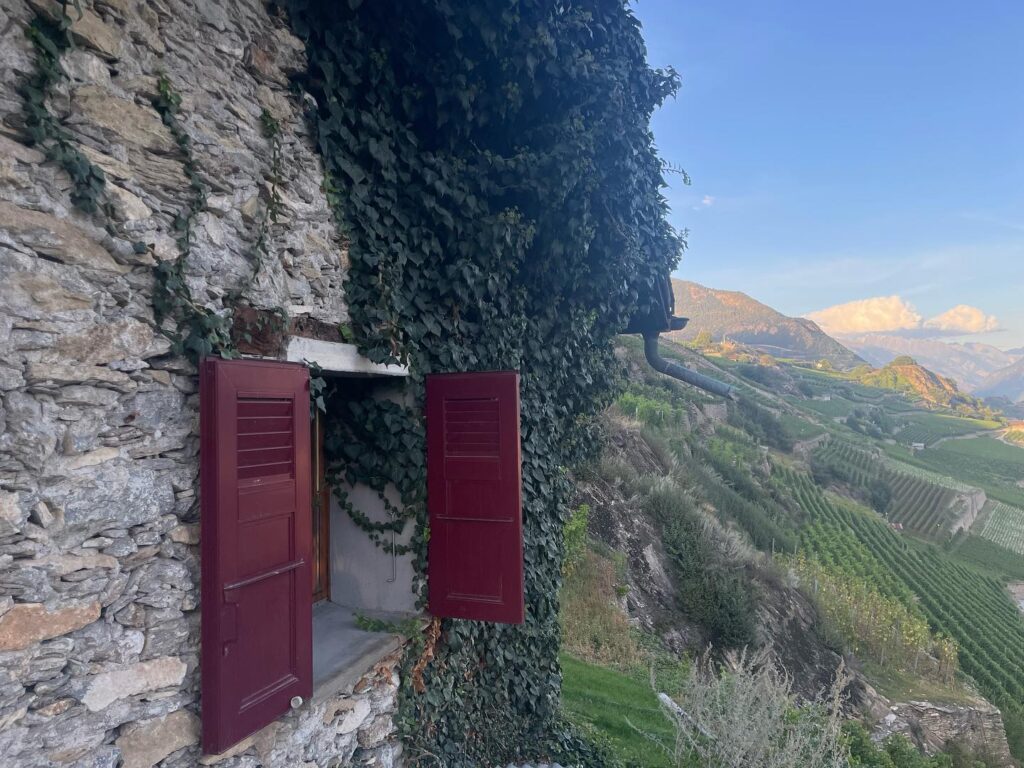
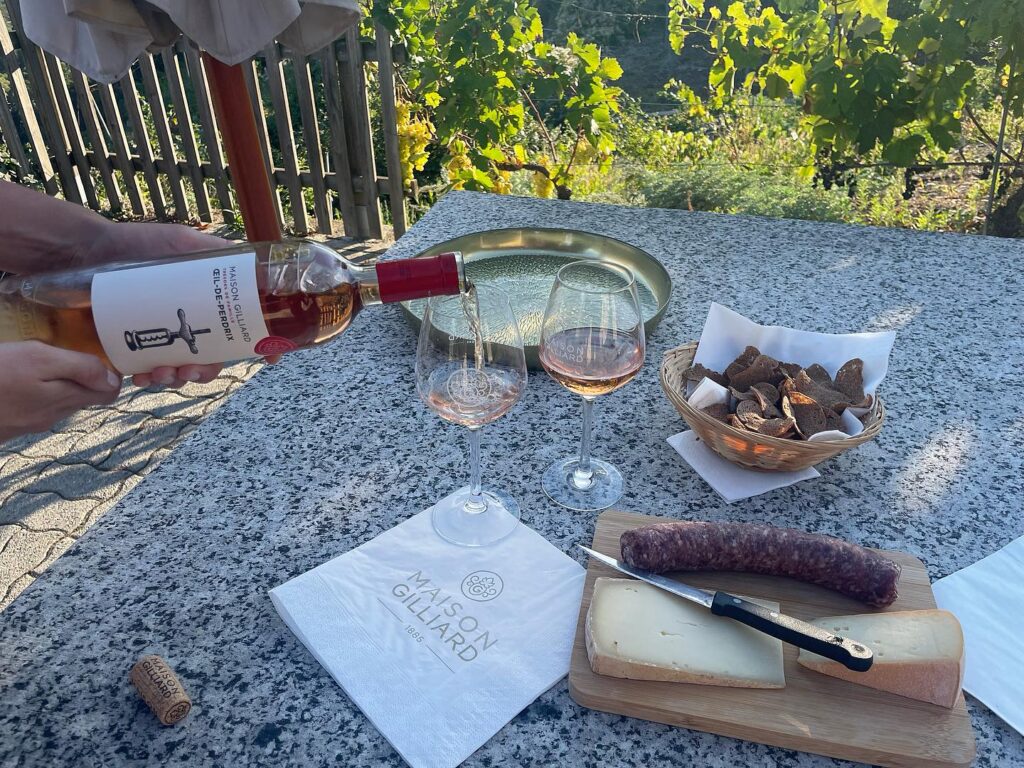

Photos from our experiece at La Vigne Swiss Wine Therapy and at the Lavaux wine terraces
Have you ever heard of Chasselas? Right, neither had I.
Perhaps that’s because only 1% of Swiss wine is exported worldwide, due to high production costs and a strong domestic market.
The idea of Switzerland as a wine producing country is often lost, swept in the dust trailing behind world renown grape cultivators Italy and France.
Yet Switzerland produces approximately 99 million liters of wine per year. The country’s history of wine production dates back to the Roman Empire5, and the Lavaux wine terraces have earned the title of UNESCO World Heritage Site.
The majority of Swiss wine is produced in the Valais region (33%), where we experienced La Vigne Swiss Wine Therapy, a pop-up spa in the mountains where visitors bask in bronze bathtubs, a glass of local wine in hand.
Last spring, Swiss parliament voted to increase funding for the promotion of Swiss wine from CHF 2.8 million to CHF 9 million6.
Until then, I encourage you, dear reader, to journey to Switzerland to experience the country’s vast vineyards for yourself.
Swiss Cents: Life in One of the Most Expensive Countries in the World
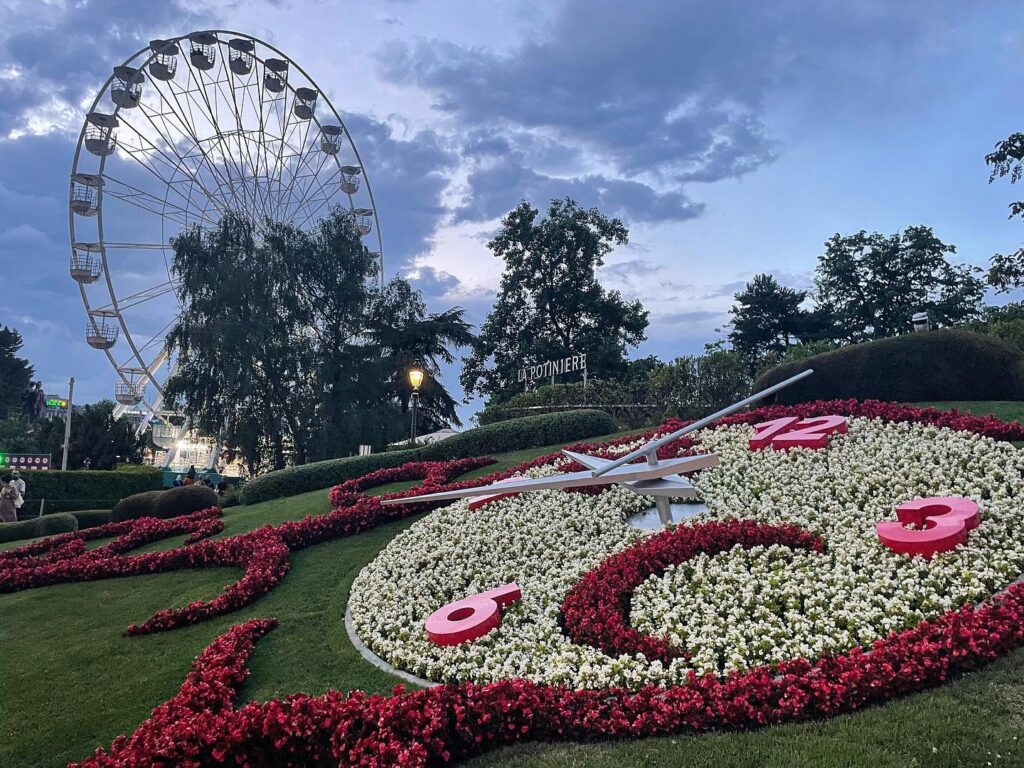
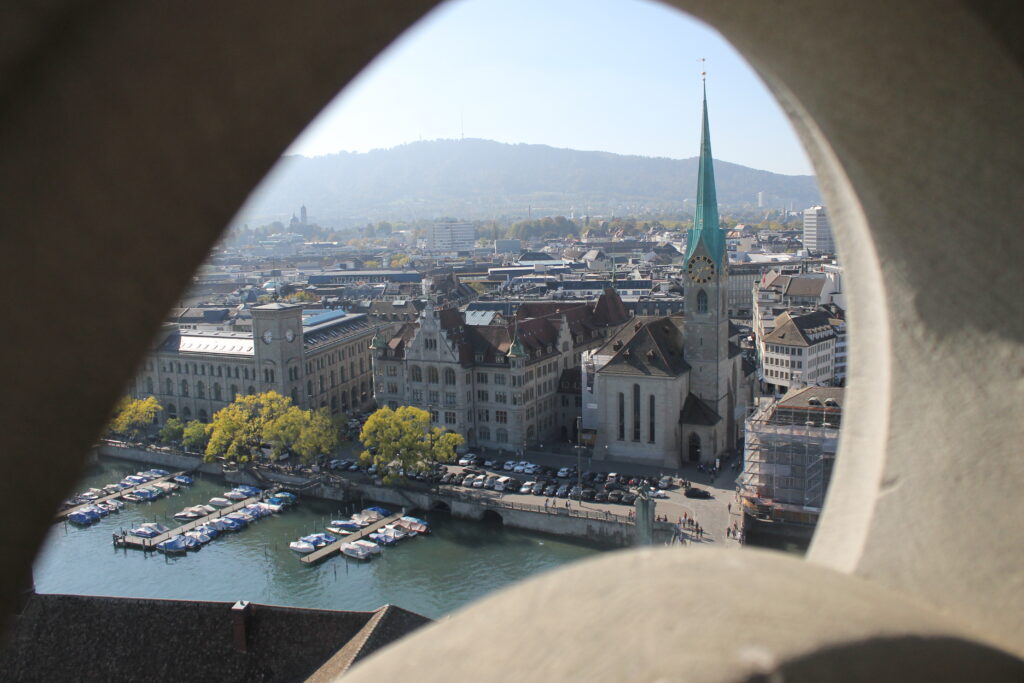

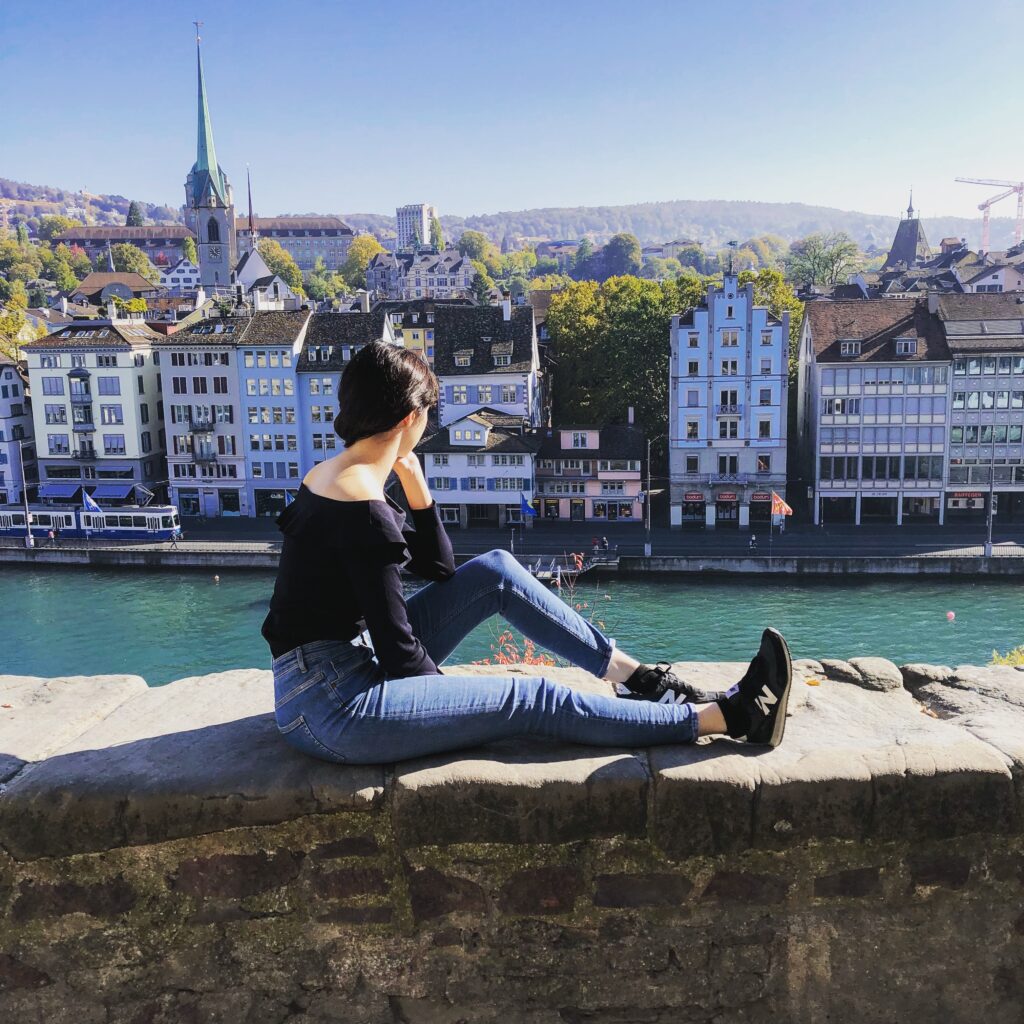
Photos of Geneva and Zuirch, two of the world’s most expensive cities
Off the plane on my arrival to Switzerland, my roomie invited me out to a birthday party. In a crowded bar, three men approached me, all happening to be Swiss bankers. I felt truly blessed – as I desperately needed a bank account to finalize paperwork for my work permit. Instead of a cocktail, I asked them for advice on where I could open an account as a newly arrived American in Switzerland.
“Well, do you have at least one million dollars in your account?” Banker number one asked. When I shook my head disappointingly, he suggested that I try opening an account with the local post office.
It’s no secret- Switzerland is the one of the most expensive countries in the world, with Geneva and Zurich often being cited in the top ten most costly cities.
If my husband and I go out to a middle grade restaurant for dinner, we will easily spend over CHF 100. Cocktails easily reach CHF 20 per drink, and pizza (the whole pie, not just a slice) is often between CHF 25 – 30 (or closer to CHF 50 if you add truffle oil). The concept of rent is a baffling conundrum of which I have yet to piece together, with prices at times soaring to CHF 4,000 per month for a two-bedroom apartment, or CHF 2,000 for a studio. My in-laws have rented an apartment all their lives, as purchasing property easily reaches the one million Swiss franc mark.
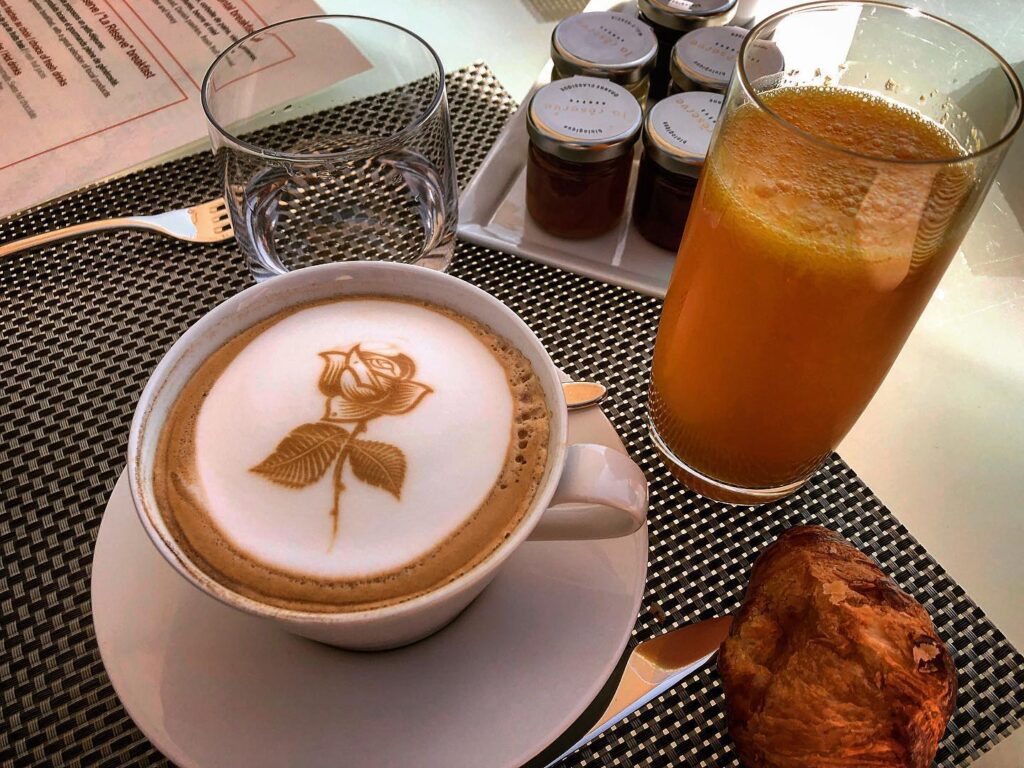
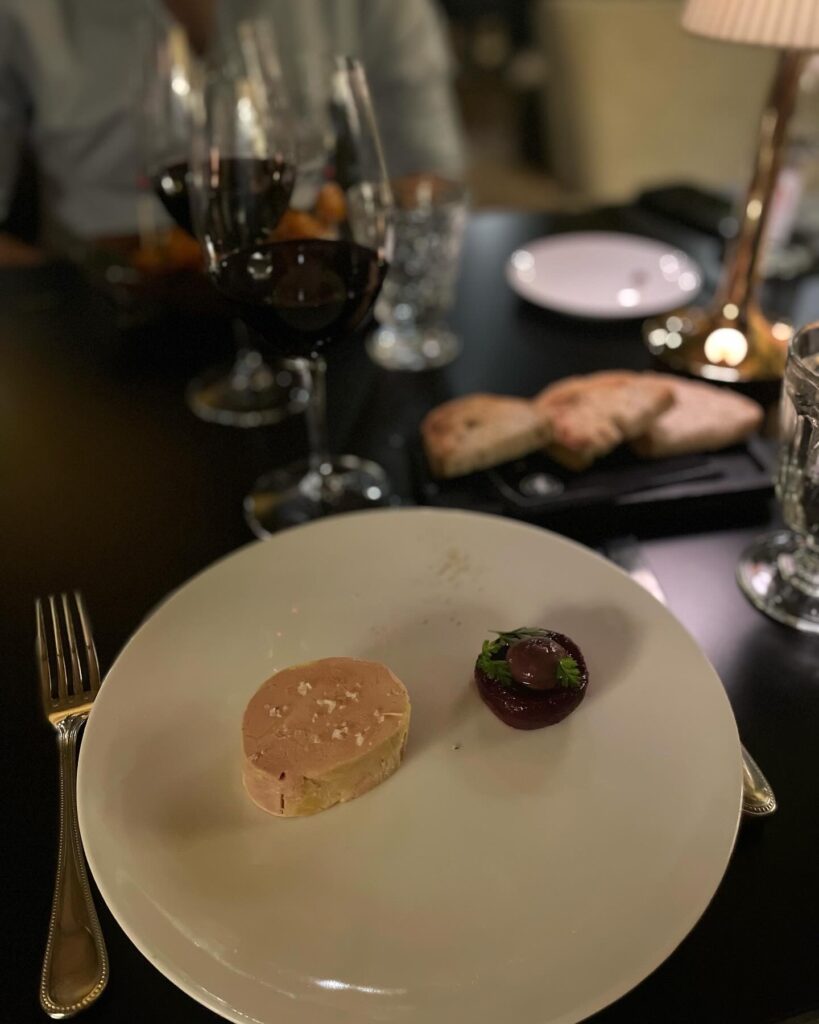
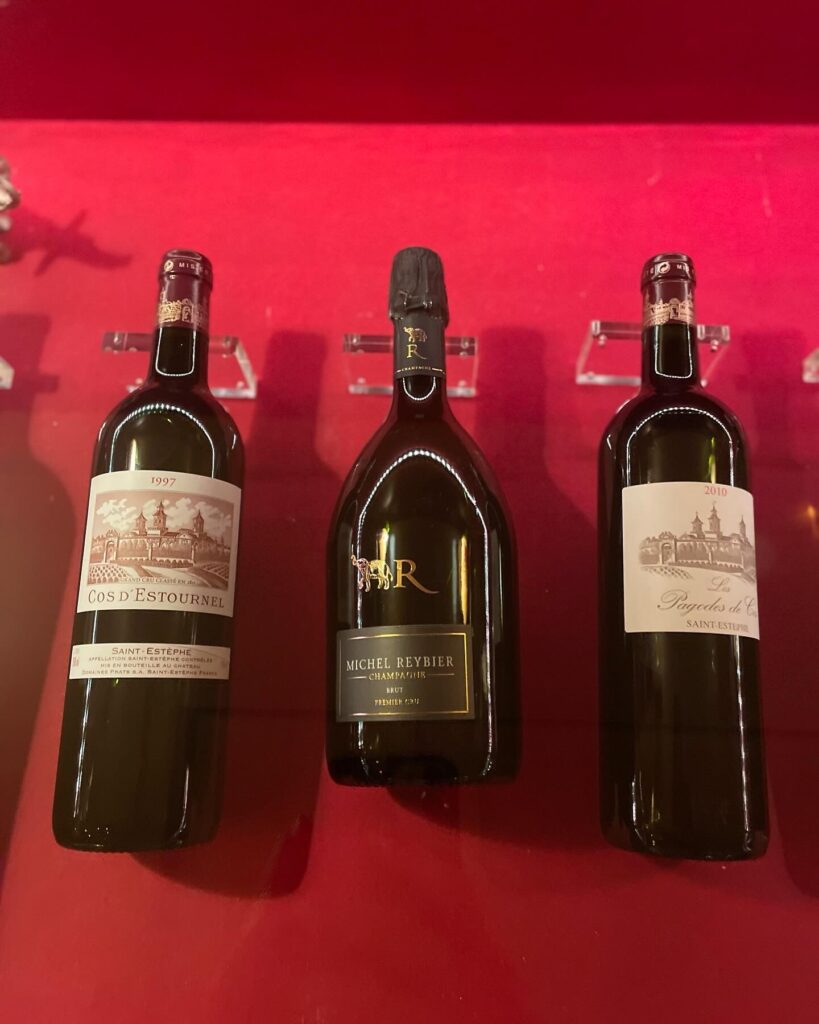
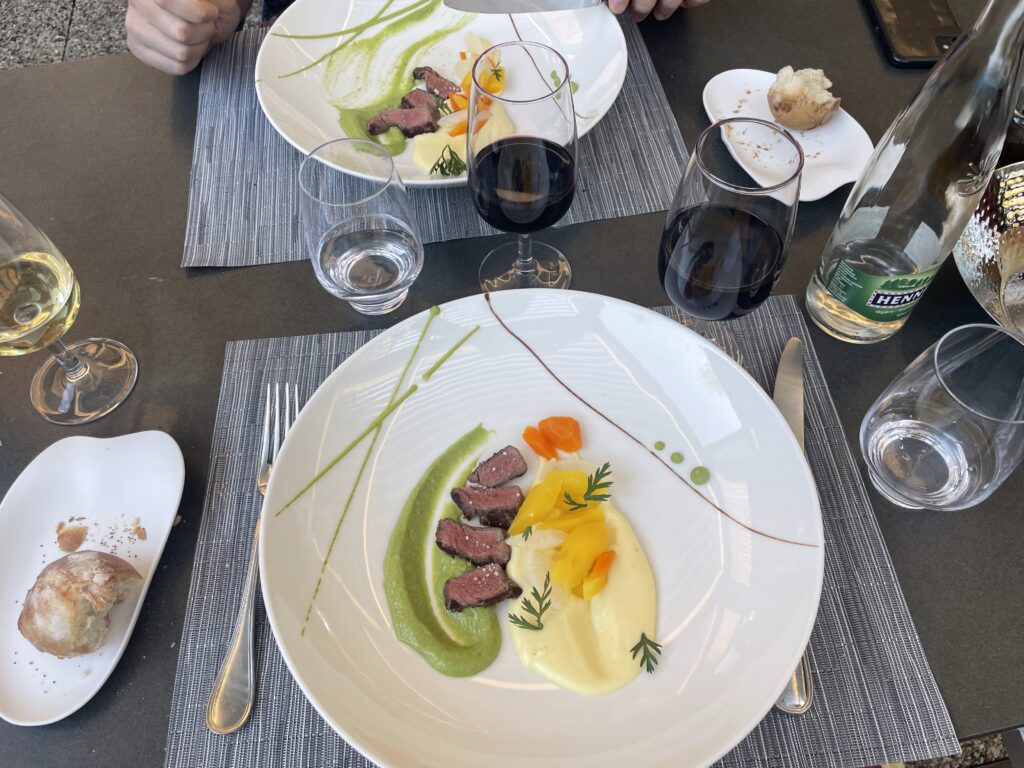
A compilation of expensive meals at Café de la réunion and La Réserve
A world leader in luxury goods and the financial sector, Switzerland has a strong value added to its export industry. Local purchasing power remains high, as do, for the most part, wages. According to La Tribune de Geneve, the amount of workers from France is increasing, many commuting from neighboring cities in the Haute Savoie region such as Annecy.
Despite high wages, 8.2% of the population were declared as living beneath the poverty line in 2022, or 702,000 people7. According to the Federal Statistical Office, this primarily impacted persons living alone or in single-parent households with minor children, those lacking post compulsory education, or foreign nationals from Eastern Europe or non-European countries.
The Power of Sundays

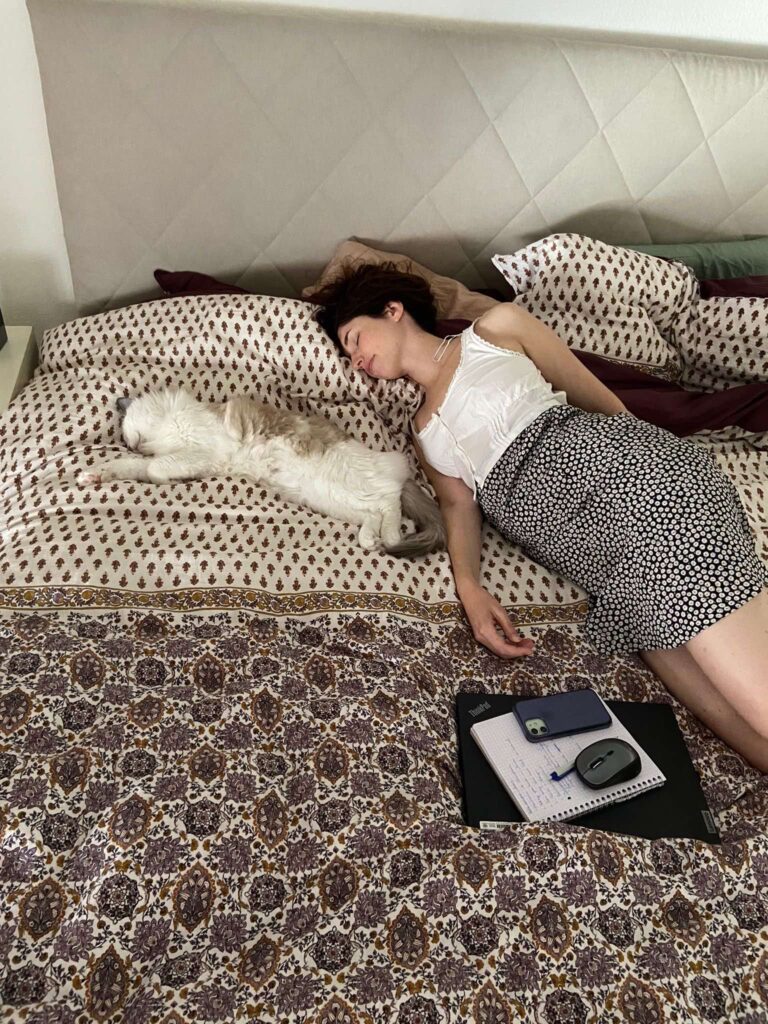
Typical Sundays at home
Quiet Sundays have become an integral part of our lives, allowing us to recharge before beginning a new week. What was once a day to stock up on groceries and run other errands is left to other days in the week, as all shops are closed throughout the country, besides a few fast-food chains. In Switzerland, one can be fined for mowing a lawn or recycling on a Sunday, as it is seen as a noise disturbance to those nearby. Dependent on apartment regulations, noise should also be reduced after 10 p.m. on weeknights, including taking shows or flushing toilets.
Resting on Sunday isn’t only encouraged in Switzerland, it’s the law.
- Bradley, S. (2024, January 28). Geneva sex workers may have to go back to school. SWI swissinfo.ch. https://www.swissinfo.ch/eng/society/prostitution_geneva-sex-workers-may-have-to-go-back-to-school/42746096 ↩︎
- Islas, P. (2024, January 24). Travailleuses du sexe: ni victimes ni rebelles. SWI swissinfo.ch. https://www.swissinfo.ch/fre/societe/prostitution-_travailleuses-du-sexe-ni-victimes-ni-rebelles/46376790 ↩︎
- Political parties. (2024, November 25). https://www.eda.admin.ch/aboutswitzerland/en/home/politik-geschichte/politisches-system/politische-parteien.html ↩︎
- Foulkes, I. (2011, January 11). Knives out for conscription into Swiss army. BBC News. https://www.bbc.com/news/world-europe-12083427 ↩︎
- Tourismus, S. (n.d.). Swiss wine – Facts and figures | Switzerland Tourism. Switzerland Tourism. https://www.myswitzerland.com/en-ch/experiences/summer-autumn/oenotourism/swiss-wine/ ↩︎
- O’Sullivan, D. (2024, March 26). Swiss wine gets boost to fend off foreign competitors. SWI swissinfo.ch. https://www.swissinfo.ch/eng/swiss-made/swiss-wine-hopes-to-boost-its-fortunes-with-fresh-funding/73692858 ↩︎
- Poverty. (n.d.). https://www.bfs.admin.ch/bfs/en/home/statistics/economic-social-situation-population/economic-and-social-situation-of-the-population/poverty-deprivation/poverty.html#:~:text=In%202022%20(income%202021)%2C,were%20affected%20by%20income%20poverty. ↩︎

Amazing article!! very interesting!!
Thank you for taking the time to read!
Beautiful pictures and amazing writing as always! Loved reading this!
Thank you Mama! You’re my biggest fan
my time was in zurick doing business periodically. did not delve into the culture as you have described but enjoyed the beauty and being able to ski. when is your book coming? loved this. so proud of you laura.
I would love to hear about your time in Zurich! I’ve been once before to go to the zoo, but would love to see it again!
It is an amazing blog, Laura. So beautifully written and so interesting. Keep writing
Thank you so much Edit for your kind words and for giving me the final push to move to Switzerland when I hesitated for a hot minute in Boston!